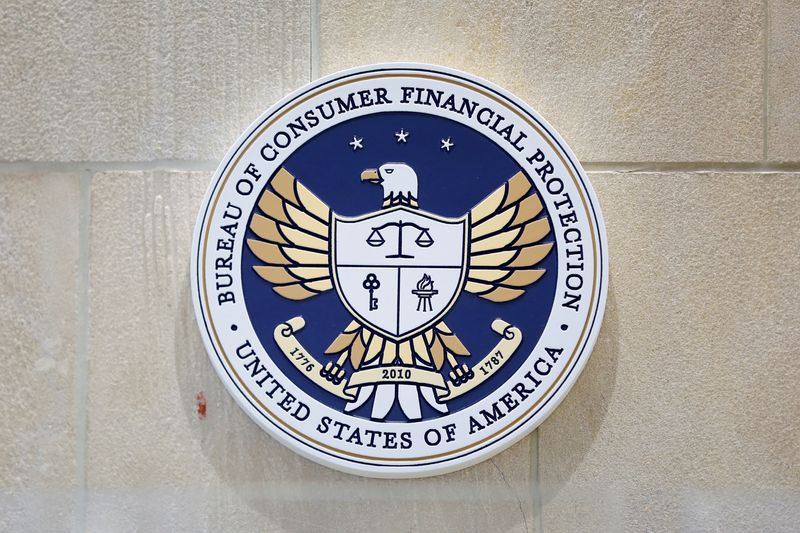By Douglas Gillison
(Reuters) -U.S. consumers would be able to more easily transfer their data between financial services providers under a long-awaited Consumer Financial Protection Bureau (CFPB) proposal unveiled on Thursday that would boost competition between financial technology firms.
The so-called open banking draft rule, which officials say they hope to finalize in 2024, would supercharge competition by giving customers "the power to walk away from bad service" and more easily switch providers, CFPB Director Rohit Chopra said in a statement.
Currently, consumers face varying conditions for accessing their own financial data depending on lenders' policies, and a lack of industry norms that harms customers, according to the CFPB.
Giving consumers the right to control and share their data with the companies of their choice should open a new world of products and services, according to the CFPB.
Europe, Britain and other countries already have open banking laws. In the United States, Congress mandated the rule following the 2007-09 global financial crisis. The provision in the Dodd-Frank Wall Street reform law requires that "upon request" banks give customers access to their data, including transaction histories, costs and usage, and that the CFPB set rules for standardized data sharing.
The White House in July 2021 urged the CFPB to get moving on the rule as part of President Joe Biden's broader competition push, while fintechs and lawmakers have also been pressing the agency to speed up the rulemaking. The White House National Economic Council jointly unveiled the rule with the CFPB.
Reuters reported last year that the CFPB had been grappling with how to handle consumer privacy and data protection issues created by the rule, particularly how Big Tech companies may use the data.
Some have cast doubt on how soon one of the CFPB's key policy aims can become a reality. During an earnings call this week, William Demchak, CEO of PNC Financial Services Group (NYSE:PNC), said he was "not afraid" consumers would abruptly close their accounts because the required technology "doesn't exist today."

The Financial Data Exchange, a U.S. industry body of which PNC is a member and that promotes common standards for user-permissioned data sharing, declined to comment on Demchak's remarks. A PNC spokesman told Reuters the company did not believe existing fraud and security controls were robust enough to allow "single click" transfers of banking relationships, though this could change in the future.
An estimated 1.8 billion or more small business and consumer bank accounts are now accessed by apps for financial planning, payments, savings, tax preparation and investment, industry figures show, while consumer adoption of financial technology services has roughly doubled every two years since 2015, according to the audit and consultancy firm EY.